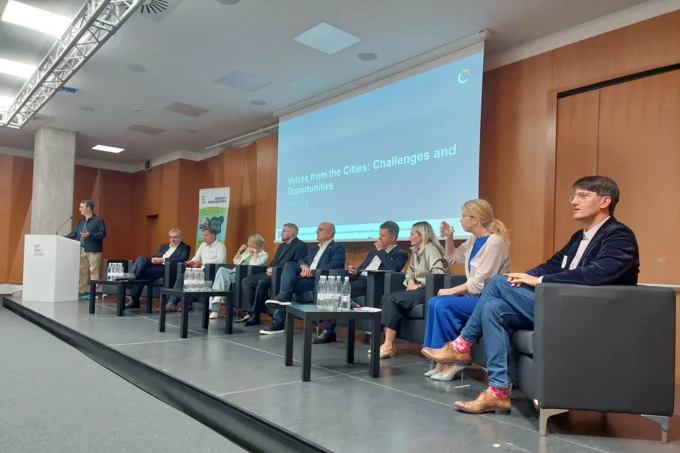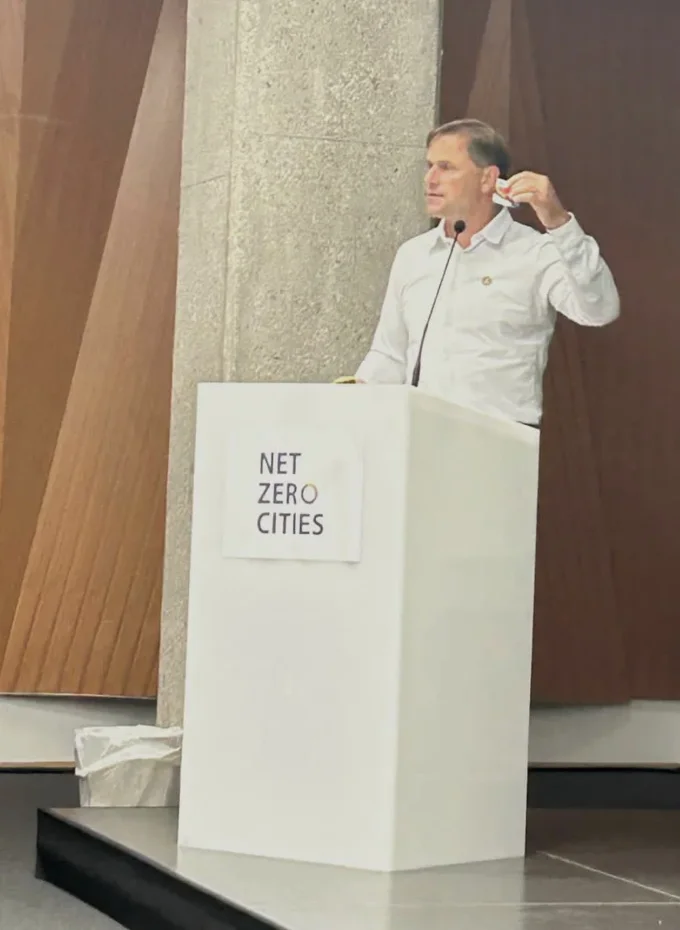Kranj at NetZeroCities Consortium Meeting in Ljubljana
On 10 and 11 September 2025, the NetZeroCities & SGAs 2025 Consortium Meeting took place at the Gospodarsko razstavišče in Ljubljana, bringing together cities, experts and partners from across Europe.
The event focused on strengthening support for cities on their journey towards climate neutrality, offering space for collaboration, strategic alignment, and hands-on problem-solving across the NetZeroCities Mission Platform.

Kranj took centre stage at the Mission Cities panel alongside Ljubljana, Velenje and Zagreb. Tomaž Lanišek, Head of the Office for Development and Smart Community at the City of Kranj, and Eva Romih, Head of the Department for Green Transition, presented Kranj’s ambitious steps towards climate neutrality by 2030 as one of 112 European Mission Cities.
Kranj has made significant progress in several areas. It has broken the infrastructure-only paradigm by integrating sustainable mobility and social dimensions into its development approach. The city has started using data as a mirror, (not just a tool), to evaluate and improve the effectiveness of its actions. It has also carried out the first-ever calculation of emissions resulting from city actions, which will serve as a baseline for monitoring future progress. »In addition, Kranj has established the Smart Kranj digital platform and introduced policies to strengthen transparency, accountability, and data access across municipal departments,« emphasized Lanišek at the discussion.

Both speakers, Lanišek and Eva Romih, called for greater data openness, alignment between EU, national and local levels, stable long-term financing, and stronger capacity-building for local administrations to deliver on ambitious climate goals.
»We have a really good working relationship with NetZeroCities, and we are grateful for the support they offer us. It is clear that they know us, the cities, well. However, there are still challenges—there are ideas and solutions, but they are sometimes difficult to implement due to overly rigid bureaucracy—and we hope that they will be able to convey our messages to those who have the mandate to change legislation and other regulations in our country,« concluded Eva Romih.